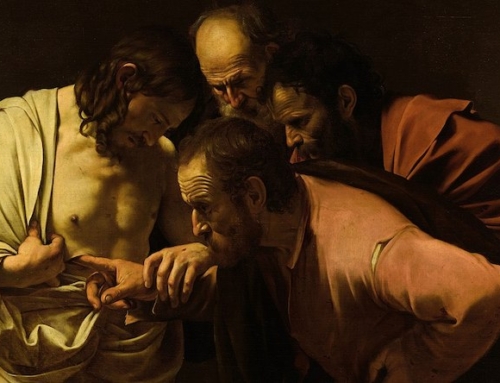We are all going to die.
We were reminded of this on Ash Wednesday when the priest put ashes on our heads saying, “Remember that you are dust, and to dust you shall return.” We need to be reminded about the reality of our death because we forget so easily.
Our culture desensitizes us to the fact of dying. It makes death seem so commonplace as to be almost unbelievable—or, at least, so prevalent that we think it could never really happen to us.
We see this in action movies where the death of combatants costs nothing: sure, a couple of those soldiers got blown up, but we didn’t really know them; they weren’t really central to the story. The good guys win, and we forget about the dead. We also see it in video games where players can continuously get killed and then “re-spawn” at no cost.
The point of receiving ashes, then, is to remind us that we are going to die someday. But do we really let that sink in? If we don’t ignore the question, it should naturally occur to us to ask: “well, if I’m going to die, what’s next? Does my life really have any meaning?”
Obviously, for the Christian, the answer is a resounding “of course.” Our life is given meaning by the promise of an eternity of happiness with God, greater than anything beyond our wildest dreams. But life doesn’t just have meaning because of the promise of something we will eventually receive but currently lack.
Those in the state of grace possess immortality now by sharing in the eternal life of God Who dwells deep within the soul. St. Augustine says that God is “more inward in me than my inmost self.” When we recognize that the Undying One wants to dwell deep within us, we begin to glimpse the true meaning He can give to our lives. But we only arrive at this recognition if we open ourselves to this reality and conform ourselves to His love.
At baptism, this most intimate, immortal indwelling of God is planted in the soul like a seed. Through frequent reception of the sacraments (especially Holy Communion and confession), God cultivates this indwelling presence so that it will blossom into a fruitful tree when the soul reaches Heaven. But we forget so easily that His immortal life can be within us; and, as a result, we also forget the true meaning of our lives.
Our consumerist lifestyle tends to bury the question of our origin and our end: it’s a defense mechanism meant to self-medicate us against the fear of not having answers to such fundamental questions. But Lent is a chance to remember—not only our impending death—but the reality that the God who never dies can live within our souls and can invite us to share that life with Him.
So how does Lent jog the memory? The three pillars of Lenten (and, really, Christian) observance are prayer, fasting, and almsgiving. Fr. Francis Martin teaches that we pray so that we can relate to God; we fast so that we can deprive ourselves; and this self-deprivation prepares us for almsgiving.
The idea behind this is that human beings are self-centered. We eat up everything: food, money, time, clothes, TV. But fasting counteracts that selfish tendency of our fallen nature. Depriving ourselves prepares us to give of ourselves and thus grow in charity (that is, love, the life of God within us). Counteracting our own selfishness prepares us, for instance, to be patient with those who annoy us and kind to those we can’t stand.
So fasting prepares us for almsgiving, but neither have a context without prayer—without recognizing and communicating with the God Who dwells deep in the souls of His faithful ones.
The lesson of Lent, then, is to remember death. But remember death so that you also remember that the immortal God wants to live within you so that you may share in His undying life. Doing so will remind you of the meaning of your own life.
✠
Image: Nicolas Poussin, Et in Arcadia ego.







